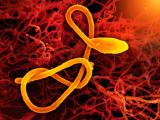Mar 23, 2005 (CIDRAP News) – Laboratory tests have shown Marburg virus to be the cause of a hemorrhagic fever outbreak in northern Angola, the World Health Organization (WHO) announced yesterday.
With the news came a dramatic jump in the fatality count, from 39 deaths reported during a two-month stretch that ended Mar 15 to 95 since October 2004, when the outbreak began, the WHO said. A total of 102 cases have been found to date, for a case-fatality rate of 93%. Most cases have been in the Uige province in northern Angola.
The number of cases makes this the second-largest Marburg outbreak recorded by WHO. Only an outbreak in the Democratic Republic of the Congo from 1998 to 2000 was larger, with 149 cases, including 123 deaths; the case-fatality rate was 83%. Many of the victims were miners in the northeastern part of the country.
Marburg is a rare disease. It was identified in 1967 when illnesses broke out simultaneously among laboratory workers in Marburg and Frankfurt, Germany, and Belgrade, Yugoslavia, according to the WHO.
Those cases were linked to contact with infected African green monkeys or their tissues. Nonetheless, intensive investigations in the intervening years have failed to establish the animal reservoir for Marburg virus.
There is neither a vaccine nor a cure for Marburg, which can quickly kill. Most deaths in this outbreak have taken place 3 to 7 days after symptoms appeared, the WHO noted. Clinical features have included vomiting, bloody discharges, and high fever.
The outbreak is disproportionately affecting children, WHO said. About 75% of the Marburg victims have been children younger than 5. Cases among adults include some healthcare workers. Close contact with the bodily fluids of infected people, such as can occur during caregiving or burial, increases the risk of infection, officials said.
Because the disease can spread from person to person, containment focuses on quickly finding and quarantining people who have had contact with Marburg victims, the agency said.
A task force has been established in Angola, with the WHO country office supporting the national health ministry, WHO has said. The WHO Regional Office for Africa has alerted its rapid response network and plans to send supplies for investigation and management of the situation.
See also:
Mar 22 WHO news release
http://www.who.int/csr/don/2005_03_23/en/
CIDRAP overview of viral hemorrhagic fevers
http://www.cidrap.umn.edu/cidrap/content/bt/vhf/biofacts/index.html



















